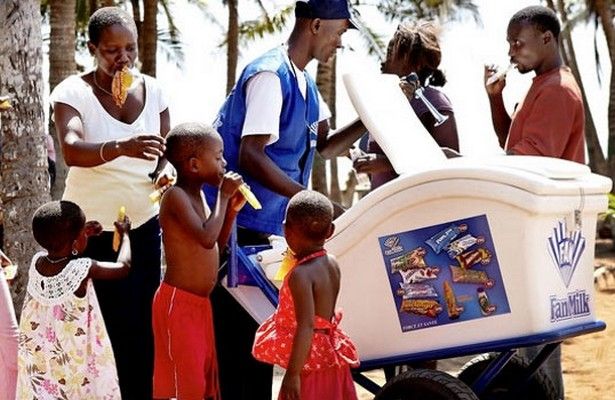It is commonplace in the streets of Accra, Lagos or any other African city to find commuters going across the street to grab some refreshment from a mobile yoghurt vendor but how long will that be possible?
Latest update from the world’s largest yoghurt maker, Danone has it that there is likely to be a "steep rise" in milk prices this year. Adding that milk prices will rise in the "mid-single digits" in Europe, Latin America and Russia. A development that may have severe consequences on the world’s yoghurt market.
For Ghana, whom as at 2012, imported about 15 thousand tons of skimmed milk --last updated figure on skim milk of cow imports from Ghana Statistical Service (GSS)-- and should have at least nearly doubled that number by December 2016 following its surge in population as well as in the consumption of milk products, it might mean major changes in prices of ‘FanIce, FanYogo among others.
Moreover, a possible hike in global milk prices may also spark a general increase in prices of other milk products like milkshake and Burkina (both served at eateries across Ghana), hence, making it difficult for these refreshment packages to be accessible to school children as well as low-income earners in the country.
While many may claim that global milk prices only started rising last year the issue remains that, if Ghana or the African continent will meet its increasing demands for milk, then its government(s) must make deliberate effort to harness the nearly untapped potential of cattle-rearing: our governments must start thinking of ways to promote private sector players in the ‘processed-milk production industry’ which at the moment merely gasp for breath in a market controlled by foreign products.
There is no doubt such thinking in African countries like Nigeria would make the Fulani cattle farmer less inclined to violence, and more on the look–out for skimmed milk production partnership opportunities.
Â





